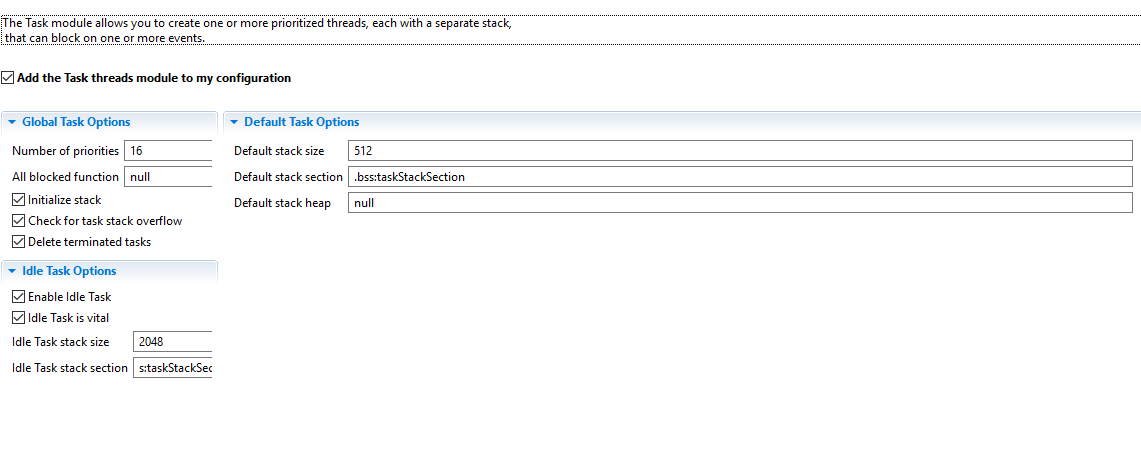Other Parts Discussed in Thread: SYSBIOS
Tool/software: TI-RTOS
Hi,
my TI RTOS is up and running with some tasks. Now I want to add a new one and suddenly the idle task throws a stackoverflow exception. I cannot understand how this happens because my idle task is empty (no idle functions configured). When I comment out the construction of the new task everything is fine.
Here some Details:
Error console:
l.Task: line 383: E_spOutOfBounds: Task 0x20015df8 stack error, SP = 0x20012924.
xdc.runtime.Error.raise: terminating execution
ROV Tasks:
Can anyone identify the problem?
Best regards








